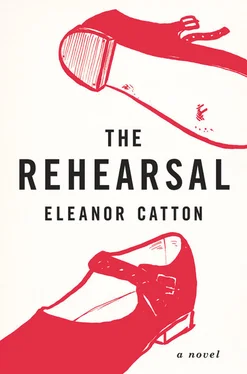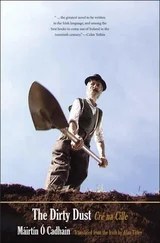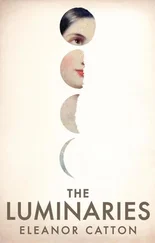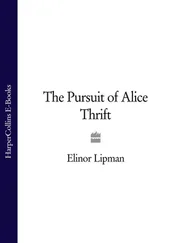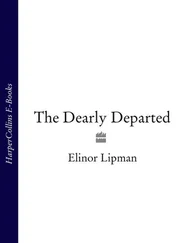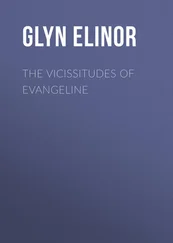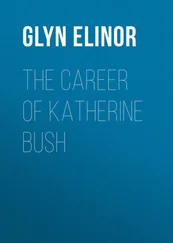“I don’t know how to seduce her,” Julia says. Her eyes are on the saxophone too, traveling up and down its length. “Sometimes I think that it would be like trying to bewitch her with a spell of her own invention if I tried to smile at her and bite my lip and cast my eyes down, if I tried to look vulnerable and coy. Would it even work ? Even the thought makes me feel disarmed and sweaty and undone. But what’s the alternative? Should I behave like a boy, play the part of a boy, do things she might want a boy to do?
“Is that how it works?” Julia says, rhetorical and musing now. She is still looking at the saxophone, lying on its side upon the chair. “Like a big game of let’s-pretend? Like a play-act? It feels like there’s this duologue about a girl and a boy who fall in love with each other. And maybe the actors are both girls but there’s only these two parts in this play, only two, so one of them has to dress up: one of them has to be mustached and breast-strapped and wide-legged and broad to play the boy.
“If you’re just looking at the costumes and the script and the curtains and the lights, all the machinery of it, then you’ll just see a boy and a girl having a love affair. But if you look at the actors underneath, if you choose not to be deceived by the spectacle of the thing, then you’ll see that it’s actually two girls. Maybe that’s what it has to be like whenever two girls get together: one of the girls always plays the part of the boy, but it’s both of them that are pretending.”
“Oh, but why can’t the two girls just perform a duologue about themselves?” the saxophone teacher says, enjoying herself. “A play written for two girls.”
“There aren’t any,” Julia says. “There aren’t any plays about two girls. There aren’t any roles like that. That’s why you have to pretend.”
“Surely you’re mistaken, Julia,” the saxophone teacher says. “Surely that isn’t right.”
Julia shrugs and looks away into the sheen of the piano and her own blurry image reflected back. She says, “There is one thing going for me, despite all this. Danger. There’s a seduction in that. That’s the card I’ll have to play, I suppose. I’ll have to amplify how forbidden it is, how unscripted and unprecedented, the danger of it.
“The element of danger is what will turn any happy-flutter in her chest into a powerful and thudding fear. That’s what I have going for me: the force of her feeling, the massive release of her trepidation, when at last she surrenders and responds. If she surrenders. Whatever she ends up feeling, at least it won’t be ambivalent. It will be either the terror-struck forbidden heave of her desire, massive and explosive like the breaking of a dam, or it will be the massive repelling force of her revulsion, her opposition, her denying me. Either way, I’ve made her feel something. She’ll have to feel something. Whatever happens next.”
Friday
The girls at Abbey Grange are forever defining each other, tenderly and savagely and sometimes out of spite. It is a skill that will be sharpened to a blade by the finish of their fifth and final year. It is the darkest and deadliest of their arts, that each girl might construct or destroy the image of any of the rest.
They say, Who do you think is most likely to marry first? and Who do you think will get with the most boys? and Who is most likely to cheat? and Who will be best in bed? and then, inevitably, Who is most likely to be a lesbian, out of all the girls in our form?
The last question is always met with shrieks and slaps and a swift intake of merry breath. In their minds they weigh up the girls with the least conquests, the girls currently not in their favor, the girls that are marginally less attractive than the rest. Unpopularity, silence, bookish introversion, any disinclination to follow in the footsteps of the flock—all these are symptoms, the girls agree, as they huddle round to diagnose. They shout out names and laugh and laugh like a coven of giddy witches casting a terrible fate.
If Julia’s name is mentioned, however, the girls will frown and flap their hands and say, “Yes, but apart from Julia.” Julia is no fun to diagnose. She somehow does not exist in this breathy, shrieking realm of social and sexual investiture where girls are named without their knowledge, convicted, and condemned. The girls cannot alter Julia’s fate by saying, I reckon Julia’s most likely to be gay. Their power has no meaning for her. She is like a loaded gun cast into their toy-box and half-buried among the plastic rifles, the plastic revolvers, the toy cannons, the caps. They fear the glint of her.
A few of them have kissed each other for the satisfaction of the St. Sylvester boys, perhaps to earn a ride around the block in a low-seated car, or in exchange for a stolen bottle or a crate of beer. A few of them have kissed each other at parties in their mates’ front rooms while their friends are outside being sick into flowerpots. Not passionately—that is their defense—but casually, and experimentally, and with no eye for affection or the promise of a sequel or a trend. These are not romances, but selfish tallies that they will later use as a mark of their own liberalism, their own worldly free-spiritedness: the kiss is an insurance, a proof for the later remark, Yeah course, I’ve kissed a girl.
By not speaking of Julia, the girls have the subtle advantage: they reduce the threat to almost nothing. When they pass her in the hall, they turn their heads and simply walk on by.
Monday
There is a message waiting on the saxophone teacher’s answer machine after Julia’s lesson. The speaker swiftly and gracefully identifies herself as one of the uninspired mothers, one of the cloying snatching mothers who would rather smother their daughters in the fold of their bosom, clasp their daughters’ faces tight to their chests and let them be stifled and choked than lengthen the ribbon of their leash and see them walk away.
The saxophone teacher pauses the machine with the edge of her fingernail, and stands a moment with her finger on the dial.
“The mothers always imagine that my allegiance lies with them,” she says aloud, “that our mutual adulthood functions to bind us together against the daughter, the child. They imagine that the daughter is simply the pursuit that draws us together, the activity we both enjoy, the monthly book club, the tennis game. The daughter is simply a medium for our friendship, an opportunity for our togetherness, a shared interest that allows us to explore and reflect upon our adult selves.
“The mothers imagine that I am their ally against the daughter, and that they are mine: they imagine that I have to work as hard as they do in order to forge a connection with the girl, and they roll their eyes at me and shake their heads and laugh like the daughter is impossible, and the both of us know it. They invite me to be tender toward the girl, frustrated with her, even despairing of her, but above all to treat her as an object, as the mere occasion for this reciprocal connection, adult with adult, like with like.”
She comes to a halt now and then stabs the machine again, bringing the voice back to life, bringing the woman back into the room.
“So I look forward to hearing from you,” the recorded woman continues. “Stella’s fourteen, been studying the clarinet for almost three years now, and before that nearly six years piano. She’s really very interested in moving on to the sax. There’s just something so dowdy and unfashionable about the clarinet, as you know, and I think she’s looking to make the move on to something a bit sexier. Something with a bit more bite, that gives her a bit more appeal. It’s a welcome move, in actual fact. We were worried for a time that she wasn’t interested enough in that sort of thing, just didn’t care enough. About boys and nice clothes and all the rest of it. We were worried for a time, I don’t mind telling you that. Not that she had trouble making friends—it was almost the opposite, really, that the friendships were just so close. You couldn’t prize them apart. Whoever it was, the current favorite. Always one after another, there was always a favorite, right the way through. I’d ferry them around, to and from the cinema and all that, and they’d always sit together in the back seat with an old rug thrown right over their heads so they could talk quietly and I couldn’t see. I’d watch in the rear-view, this shrouded tartan thing with their two heads together and both of them whispering away. Looked like they were kissing, even. It unnerved me. I don’t mind telling you that.
Читать дальше
